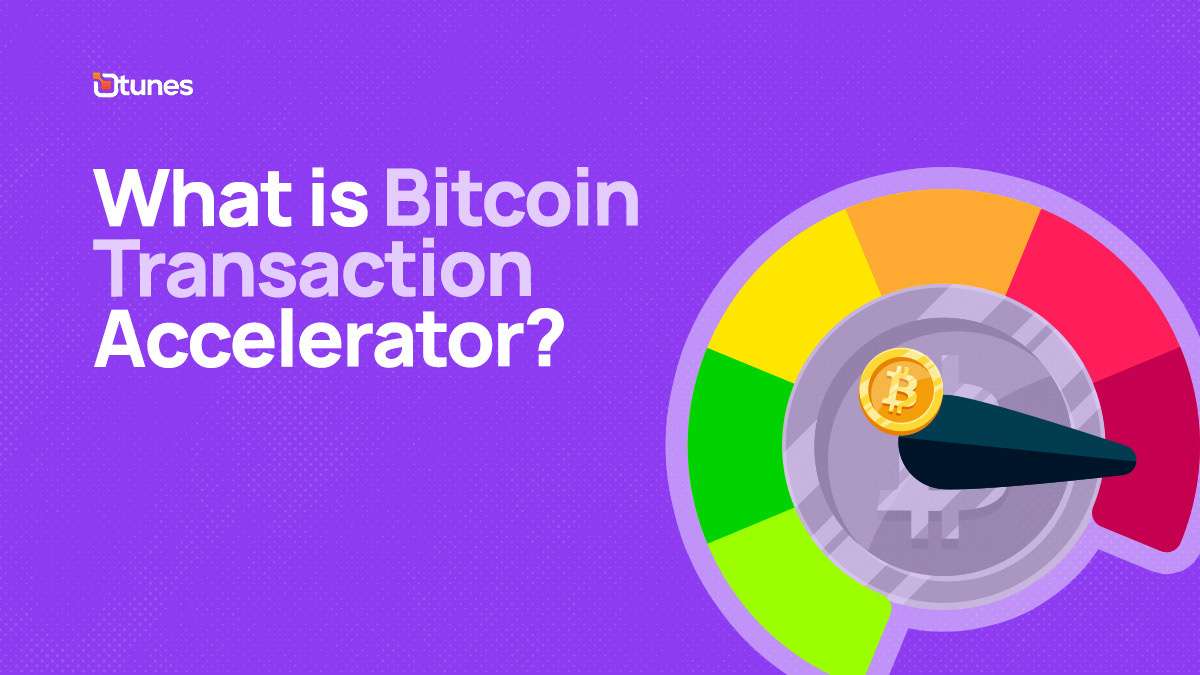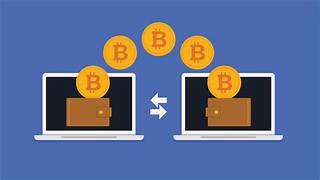
What is Bitcoin Transaction Accelerator?
Bitcoin Transaction Accelerator: Bitcoin, the pioneer of cryptocurrencies, has revolutionized the financial landscape with its decentralized and transparent nature. However, as the popularity of Bitcoin continues to grow, so does the demand for efficient and timely transactions. In this quest for faster transactions, the concept of a “Bitcoin Transaction Accelerator” has emerged. In this article, we will delve into the fundamentals of Bitcoin, explore the challenges of transaction speed, and understand how a Bitcoin Transaction Accelerator works to enhance the efficiency of Bitcoin transactions.
What is Bitcoin?

Bitcoin, introduced in 2009 by an anonymous entity known as Satoshi Nakamoto, is a decentralized digital currency that operates on a peer-to-peer network. Unlike traditional currencies issued by governments, Bitcoin relies on a technology called blockchain to validate and record transactions. The blockchain is a distributed ledger that is maintained by a network of nodes, ensuring transparency and security.
Bitcoin transactions involve the transfer of value between two parties, recorded on the blockchain. Each transaction is grouped into a block, and these blocks are linked together, forming a chain – the blockchain. Miners, individuals or entities that contribute computing power to the network, validate and add these blocks to the blockchain through a process called mining.
While Bitcoin transactions offer a secure and transparent alternative to traditional financial systems, one common challenge is transaction speed. The time it takes for a Bitcoin transaction to be confirmed and added to the blockchain can vary, depending on factors such as network congestion and transaction fees.
Challenges of Transaction Speed in Bitcoin

Bitcoin transactions are processed through a consensus mechanism known as Proof-of-Work (PoW). Miners compete to solve complex mathematical puzzles, and the first one to solve it gets the opportunity to add a new block to the blockchain. While this process ensures the security of the network, it introduces a variable element to transaction speed.
Network Congestion: As the number of Bitcoin users and transactions increases, the network can experience congestion, causing delays in transaction confirmations. During peak times, the backlog of unconfirmed transactions may grow, leading to longer confirmation times.
Transaction Fees: Bitcoin users have the option to include transaction fees to incentivize miners to prioritize their transactions. However, during times of high demand, users may find themselves in a bidding war, resulting in increased transaction fees. Those who opt for lower fees may experience slower transaction confirmations.
Confirmation Time: The average time it takes for a Bitcoin transaction to be confirmed and added to the blockchain is around 10 minutes. However, this can vary, and users may find themselves waiting for multiple confirmations for larger transactions, especially for exchanges or significant transfers.
Enter the Bitcoin Transaction Accelerator
In response to the challenges posed by transaction speed, the concept of a Bitcoin Transaction Accelerator has gained prominence. A Bitcoin Transaction Accelerator is a service designed to expedite the confirmation of Bitcoin transactions, offering a solution to users facing delays or high fees.
How Bitcoin Transaction Accelerator Works

A Bitcoin Transaction Accelerator operates by leveraging the influence miners have over transaction processing. Here’s a step-by-step breakdown of how these accelerators work:
- User Submission: When a Bitcoin user initiates a transaction and experiences delays or wants to speed up the confirmation process, they can submit their transaction details to a Bitcoin Transaction Accelerator.
- Fee Payment (Optional): Some accelerators may require users to pay a fee for their service. This fee serves as an incentive for the miners to prioritize the submitted transaction. Users can choose to pay a higher fee to increase the chances of faster confirmation.
- Miner Prioritization: The Bitcoin Transaction Accelerator then broadcasts the submitted transaction and associated fees to a network of miners. Miners, incentivized by the additional fees, prioritize these transactions over others.
- Inclusion in the Next Block: Since miners have the authority to select which transactions to include in the next block they mine, the accelerated transaction is more likely to be included promptly, reducing the confirmation time.
- Confirmation Notification: Once the transaction is successfully included in a block and added to the blockchain, the Bitcoin Transaction Accelerator notifies the user of the successful acceleration.
Benefits of Using a Bitcoin Transaction Accelerator

- Time Savings: The primary advantage of using a Bitcoin Transaction Accelerator is the significant reduction in transaction confirmation times. This is particularly beneficial for users who require quick confirmations for time-sensitive transactions.
- Mitigation of Congestion: During periods of network congestion, a transaction accelerator allows users to bypass the normal queuing process, ensuring their transactions are prioritized.
- Flexibility in Transaction Fees: Users have the flexibility to choose whether they want to pay an additional fee for acceleration. This can be advantageous during times of high network demand when users are competing to have their transactions processed quickly.
- Improved User Experience: Accelerating Bitcoin transactions contributes to an overall improved user experience, especially for those who rely on timely confirmations for various purposes such as trading or payments.
Considerations and Limitations

While Bitcoin Transaction Accelerators offer a valuable service, users should be aware of certain considerations and limitations:
- Fee Variability: The effectiveness of a Bitcoin Transaction Accelerator may depend on the offered fee and network conditions. During periods of extreme congestion, even accelerated transactions may face delays.
- Service Reliability: The reliability of a transaction accelerator depends on the reputation and infrastructure of the service provider. Users should choose reputable accelerators to ensure the effectiveness of the acceleration process.
- Confirmation Guarantees: While accelerators can significantly improve confirmation times, they do not guarantee instant confirmation. Users should manage their expectations and consider factors such as network conditions and the chosen fee.
- Availability: The availability of a Bitcoin Transaction Accelerator can vary, and users should verify the operational status of the service before relying on it for transaction acceleration.
Conclusion
As the demand for faster and more efficient Bitcoin transactions grows, the role of Bitcoin Transaction Accelerators becomes increasingly significant. These services offer users the ability to expedite their transactions, mitigating challenges related to network congestion and transaction fees. While accelerators provide a valuable solution, users should exercise caution, choose reliable service providers, and understand the variables that can impact the effectiveness of transaction acceleration. As the cryptocurrency landscape continues to evolve, innovations like Bitcoin Transaction Accelerators contribute to enhancing the usability and scalability of digital currencies like Bitcoin.
Tobi brings stories to life as the Content Writer and Creator at Dtunes, blending creativity with strategy to connect with audiences. When she’s not crafting content, you’ll find her traveling, meeting new people, or trying out exciting things.




